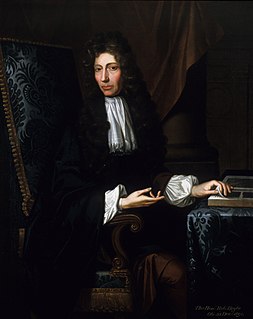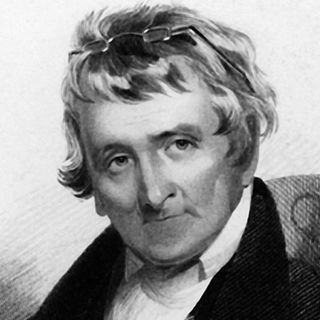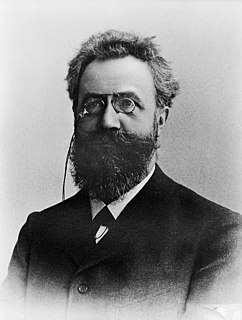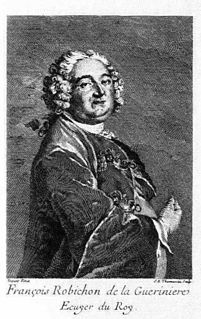A Quote by Robert Boyle
And first, it seems not at all probable, That if the Omniscient Author of Nature knew that the study of his Works did really tend to make Men disbelieve his Being or Attributes, he would have given Men so many Invitations, and almost Necessities, to study and contemplate the Nature of his Creatures: Of these Invitations divers have been mention'd already, and more might be added to them, if we thought it requisite.
Related Quotes
Men sometimes speak as if the study of the classics would at length make way for more modern and practical studies; but the adventurous student will always study classics, in whatever language they may be written and however ancient they may be. For what are the classics but the noblest recorded thoughts of man?... We might as well omit to study Nature because she is old.
The face of the Son of God, who, instead of accepting the sacrifice of one of his creatures to satisfy his justice or support his dignity, gave himself utterly unto them, and therein to the Father by doing his lovely will; who suffered unto the death, not that men might not suffer, but that their suffering might be like his, and lead them up to his perfection.
How shall we define occultism? The word is derived from the Latin occultus, hidden; so that it is the study of the hidden laws of nature. Since all the great laws of nature are in fact working in the invisible world far more than in the visible, occultism involves the acceptance of a much wider view of nature than that which is ordinarily taken. The occultist, then, is a man who studies all the laws of nature that he can reach or of which he can hear, and as a result of his study he identifies himself with these laws and devotes his life to the service of evolution.
Manlius ... took care in his invitations, actively sought to exclude from his circle crude and vulgar men like Caius Valerius. But they were all around; it was Manlius who lived in a dream world, and his bubble of civility was becoming smaller and smaller. Caius Valerius, powerful member of a powerful family, had never even heard of Plato. A hundred, even fifty years before, such an absurdity would have been inconceivable. Now it was surprising if such a man did know anything of philosophy, and even if it was explained, he would not wish to understand.
Criticism is a study by which men grow important and formidable at very small expense. The power of invention has been conferred by nature upon few, and the labour of learning those sciences which may, by mere labour, be obtained, is too great to be willingly endured; but every man can exert some judgment as he has upon the works of others; and he whom nature has made weak, and idleness keeps ignorant, may yet support his vanity by the name of critic.
All these, however, were mere terrors of the night, phantoms of the mind that walk in darkness; and though he had seen many spectres in his time, and been more than once beset by Satan in divers shapes, in his lonely pre-ambulations, yet daylight put an end to all these evils; and he would have passed a pleasent life of it, in despite of the devil and all his works, if his path had not been crossed by a being that causes more perplexity to mortal man than ghosts, goblins, and the whole race of witches put together, and that was - a woman.
Apollo at Delphi, through the oracular utterance of his priestess, pronounced Socrates the wisest of men. Of him it is related that he said with sagacity and great learning that the human breast should have been furnished with open windows, so that men might not keep their feelings concealed, but have them open to the view. Oh that nature, following his idea, had constructed them thus unfolded and obvious to the view.
The patient man is merry indeed.... The jailers that watch him are but his pages of honour, and his very dungeon but the lower side of the vault of heaven. He kisseth the wheel that must kill him; and thinks the stairs of the scaffold of his martyrdom but so many degrees of his ascent to glory. The tormentors are weary of him. the beholders have pitty on him, all men wonder at him; and while he seems below all men, below himself, he is above nature. He hath so overcome hlmself that nothing can conquer him.
The first effect of the mind growing cultivated is that processes once multiple get to be performed in a single act. Lazarus has called this the progressive "condensation" of thought. ... Steps really sink from sight. An advanced thinker sees the relations of his topics is such masses and so instantaneously that when he comes to explain to younger minds it is often hard ... Bowditch, who translated and annotated Laplace's Méchanique Céleste, said that whenever his author prefaced a proposition by the words "it is evident," he knew that many hours of hard study lay before him.
The Roman rule was, to teach a boy nothing that he could not learn standing. The old English rule was, "All summer in the field, and all winter in the study." And it seems as if a man should learn to plant, or to fish, or to hunt, that he might secure his subsistence at all events, and not be painful to his friends and fellow men.
Cruelty, very far from being a vice, is the first sentiment Nature injects in us all. The infant breaks his toy, bites his nurse's breast, strangles his canary long before he is able to reason; cruelty is stamped in animals, in whom, as I think I have said, Nature's laws are more emphatically to be read than in ourselves; cruelty exists amongst savages, so much nearer to Nature than civilized men are; absurd then to maintain cruelty is a consequence of depravity. . . . Cruelty is simply the energy in a man civilization has not yet altogether corrupted: therefore it is a virtue, not a vice.







































